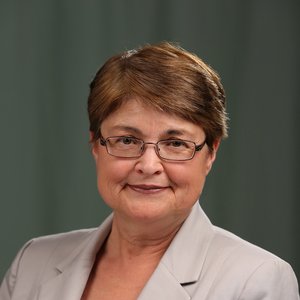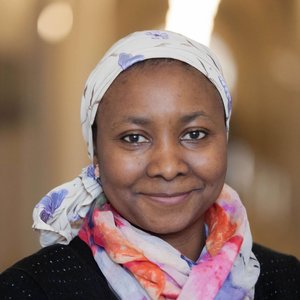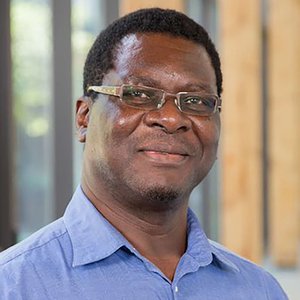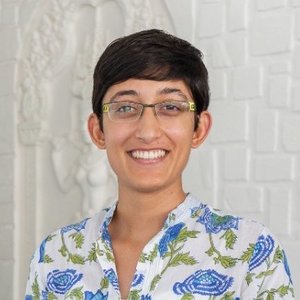January 15, 2024 (Waterloo, Canada) – The Centre for International Governance Innovation is pleased to welcome 14 new fellows to the Digital Policy Hub. These emerging scholars and innovative thinkers from the social, natural and applied sciences will join nine fellows continuing from the fall 2023 term to form an even larger and more diverse cohort of 23 fellows for the Hub’s winter 2024 term.
The inaugural fall term provided fellows with the opportunity to participate in seven professional development sessions, eight core seminars and one year-end research conference. Twelve working papers were presented at the conference and will be published online early this year, marking the first publications and speaking engagements for several Hub fellows.
“The Hub’s first term was a resounding success: the program achieved its primary goal of bridging research from students and professionals across the country,” said Reanne Cayenne, the Digital Policy Hub’s research coordinator. “The Hub community continues to grow, and we look forward to the groundbreaking work that comes from the new cohort.”
Established in 2023, the Digital Policy Hub is a collaborative space for undergraduate and graduate students, and post-doctoral and visiting fellows to share and develop their research on the rapid evolution and governance of transformative technologies. The program was designed to help fellows build analytical and policy practices and standards, preparing them to meet the challenges and opportunities of the digital era.
The winter 2024 cohort of fellows join the Hub from institutions and organizations across Canada, with expertise and interests covering a wide range of topics, such as governance frameworks for Sub-Saharan Africa, racial inequalities caused by digital technology, responding to unconventional defence threats, social licence for artificial intelligence and countering technical foreign interference.
-
 Ozan AyataDigital Policy Hub Master’s Fellow
Ozan AyataDigital Policy Hub Master’s FellowOzan Ayata holds a master’s degree in international relations with a focus on security and defence. He currently serves as a cybersecurity analyst at the Department of National Defence. Ozan has previously led various research projects at Carleton University and collaborated with organizations such as the Canadian Defence and Security Network, Sustainable Development Technology Canada and the Forum of Federations. With the Digital Policy Hub, Ozan conducted research on how public-private partnerships can effectively prepare for and mitigate the risks posed by emerging technologies to international security, with a specific focus on components of AI, such as deepfakes.
-
 Dana CramerDigital Policy Hub Doctoral Fellow
Dana CramerDigital Policy Hub Doctoral FellowDana Cramer is a former Digital Policy Hub doctoral fellow researching policy and governance approaches for emerging technologies. She was a top 10 finalist for the 2023 International Institute of Communications Future Leaders’ Competition and is a previous winner of the 2020 Canadian Radio-television and Telecommunications Commission’s Prize for Excellence in Policy Research. She leads the Youth Internet Governance Forum (IGF) Canada and sits on the Canadian IGF All-Hands Committee. In 2023, she held a fellowship with the American Registry for Internet Numbers. She is pursuing her Ph.D. at Toronto Metropolitan University and York University’s Joint Graduate Program in Communication and Culture.
-
 Ivan Nuñez GamezDigital Policy Hub Undergraduate Fellow
Ivan Nuñez GamezDigital Policy Hub Undergraduate FellowIvan Nuñez Gamez is a first-generation Latino-Caribbean immigrant pursuing a political studies (honours) and economics degree at the University of Manitoba. Throughout his undergraduate studies, he has remained dedicated to serving his peers through student-led advocacy and policy making, serving as the University of Manitoba Students’ Union governance chair, a role in which he effectively ensured equitable representation for marginalized students in governing bodies and reformed electoral proceedings to increase engagement. He is an undergraduate fellow at the Digital Policy Hub, where his research examined current strategies enacted by the federal government to counter technical foreign interference.
-
 Shuna HoDigital Policy Hub Visiting Fellow
Shuna HoDigital Policy Hub Visiting FellowShuna Shu Ham Ho is a former Digital Policy Hub visiting fellow and an assistant professor of international business and strategy in the Faculty of Management at Dalhousie University. Her research focused on non-market strategies, including corporate social responsibility, social licence and sustainable development. She recently started research on the social licence for AI, which has been challenging digital giants since 2020, especially after the establishment of the “Social Contract for the AI Age.” Shuna has previously published in the Strategic Management Journal and the Journal of Management Studies.
-
 Madison LeeDigital Policy Hub Doctoral Fellow
Madison LeeDigital Policy Hub Doctoral FellowMadison Lee is a former doctoral fellow at the Digital Policy Hub and a Ph.D. student at the Balsillie School of International Affairs in Waterloo, Ontario, specializing in the field of international political economy. Madison’s research lies at the intersection of technology and international affairs. Her work offers valuable insights into the shifting paradigms of digital governance, addressing critical questions in the realm of international political economy. Madison’s journey into the world of decentralized web mechanisms began with her master’s degree at the University of Waterloo. During that time, she delved deep into the inner workings and historical evolution of digital currency, laying a solid foundation for her current doctoral research.
-
 Emanuel LukawieckiDigital Policy Hub Master’s Fellow
Emanuel LukawieckiDigital Policy Hub Master’s FellowEmanuel Lukawiecki is an M.A. candidate in public administration at the University of Ottawa. As a Digital Policy Hub master’s fellow, he examined possible adaptation strategies for the Canadian Armed Forces to respond to unconventional defence threats posed by AI.
-
 Michael P. A. MurphyDigital Policy Hub Post-doctoral Fellow
Michael P. A. MurphyDigital Policy Hub Post-doctoral FellowMichael P. A. Murphy is a former post-doctoral fellow at the Digital Policy Hub and a post-doctoral fellow at Queen’s University’s Department of Political Studies and Centre for International and Defence Policy. He is the author of Quantum Social Theory for Critical International Relations Theorists (Palgrave, 2021), Weak Utopianism in Education (Routledge, 2024) and more than 40 peer-reviewed articles, receiving over 1,800 citations. He serves as the editorial assistant at Security Dialogue and is vice president of the Canadian region of the International Studies Association.
-
 Elia RaskyDigital Policy Hub Post-doctoral Fellow
Elia RaskyDigital Policy Hub Post-doctoral FellowElia Rasky holds a Ph.D. in political science from York University. He is a former Digital Policy Hub post-doctoral fellow with research interests including Canadian politics, global political economy, and science and innovation policy. His Hub research explored the role of academics, business associations and civil society actors in the development of AI policies and regulations in Canada.
-
 Shirley Anne ScharfDigital Policy Hub Post-doctoral Fellow
Shirley Anne ScharfDigital Policy Hub Post-doctoral FellowShirley Anne Scharf is a former Digital Policy Hub post-doctoral fellow at CIGI. She is also a visiting researcher with the CN-Paul M. Tellier Chair on Business and Public Policy at the University of Ottawa, as well as a post-doctoral fellow with the Innovation Policy Lab, Munk School of Global Affairs and Public Policy, University of Toronto. Shirley Anne has a Ph.D. in public administration from the University of Ottawa, where her dissertation was titled “Canadian Innovation Policy: The Continuing Challenge” (2022). Her current research focuses on innovation policy from two innovation leaders — the Republic of Korea and Sweden — and the comparative lessons Canada may learn from these countries. Other research interests include industrial policy, governance and technological change.
-
 Javier Ruiz-SolerDigital Policy Hub Visiting Fellow
Javier Ruiz-SolerDigital Policy Hub Visiting FellowJavier Ruiz-Soler is an expert on emerging technologies and digital policies, a senior technology and policy advisor at the Information and Privacy Commissioner of Ontario, and a former Digital Policy Hub visiting fellow. While at the Hub, Javier conducted research and analysis on leading-edge information technologies.
-
 Tyler StevensonDigital Policy Hub Undergraduate Fellow
Tyler StevensonDigital Policy Hub Undergraduate FellowTyler Stevenson is completing his bachelor’s degree in international economics with a minor in data science at the University of British Columbia. His interests are in the field of economics and the internet, with a focus on the capabilities and impact of digital neocolonialism on the development of the Global South. He expanded on this research as an undergraduate fellow with the Digital Policy Hub.
-
 Christelle TessonoDigital Policy Hub Master's Fellow
Christelle TessonoDigital Policy Hub Master's FellowChristelle Tessono is a technology policy researcher currently pursuing her graduate studies at the University of Toronto’s Faculty of Information. She recently completed a two-year research fellowship as an inaugural Emerging Scholar at Princeton University’s Center for Information Technology Policy. She is interested in tackling the relationship between racial inequality and digital technology from a policy lens. As a Digital Policy Hub master's fellow, she built on projects she has worked on related to political advertising on social media platforms, gig work, facial recognition technology, data governance and AI regulation.
-
 Ryan WestmanDigital Policy Hub Visiting Fellow
Ryan WestmanDigital Policy Hub Visiting FellowRyan Westman is a director of threat intelligence at Waterloo, Ontario-based eSentire and leads the firm’s threat intelligence team. Prior to joining eSentire, Ryan spent three years in management consulting, leading a threat intelligence and analytics team, and also worked for Public Safety Canada and the Canadian Armed Forces. Ryan holds a B.A. in political science and history from Wilfrid Laurier University, an M.Sc. in counterterrorism from the University of Central Lancashire and a master’s degree from the University of Waterloo. He is a certified cyberthreat intelligence analyst and certified forensic analyst through Global Information Assurance Certification. As a Digital Policy Hub visiting fellow, he focused on the impact of poor digital defences on the Canadian economy.
-
 Badriyya YusufDigital Policy Hub Doctoral Fellow
Badriyya YusufDigital Policy Hub Doctoral FellowBadriyya Yusuf is a Social Sciences and Humanities Research Council doctoral candidate in international relations in the Department of Political Studies at Queen’s University, Canada. She holds a master’s degree in development practice from the University of Winnipeg. Badriyya adopts an interdisciplinary approach to global digital governance, political economy and international development. Her recent work on regional security governance has been published by Routledge and International Journal. Her research as a doctoral fellow with the Digital Policy Hub examined data governance frameworks, with a focus on Sub-Saharan Africa.
-
 Ori FreimanDigital Policy Hub Post-doctoral Fellow
Ori FreimanDigital Policy Hub Post-doctoral FellowOri Freiman is a post-doctoral fellow at McMaster University’s Digital Society Lab, and a former post-doctoral fellow at the Digital Policy Hub. He is researching the responsible implementation of emerging technologies, trust in technology and the impacts of technology policy on democracy and societal change. He completed a post-doctoral fellowship at the University of Toronto’s Ethics of AI Lab. His formal education includes a B.A. in philosophy; an M.A. in library and information science; and a Ph.D. from the Graduate Program in Science, Technology and Society at Bar-Ilan University, Israel.
-
 Andrew HeffernanDigital Policy Hub Post-doctoral Fellow
Andrew HeffernanDigital Policy Hub Post-doctoral FellowAndrew Heffernan is a part-time professor of international relations and comparative politics at the University of Ottawa, where he also completed a Ph.D. in political science. He is a former post-doctoral fellow at the Digital Policy Hub whose research examined climate governance and mis- and disinformation around climate change. Other major research interests include African politics, global environmental governance, climate change mis- and disinformation, community-based conservation, and the politics of food. Andrew is also active in the scholarship of teaching and learning, about which he is regularly publishing on and presenting at academic conferences, as well as implementing in his teaching in university classes.
-
 Paula MartinsDigital Policy Hub Doctoral Fellow
Paula MartinsDigital Policy Hub Doctoral FellowPaula Martins is a policy advocacy lead at the Association for Progressive Communications where she follows digital and human rights policy issues at the global level and helps shape the organization’s responses to emerging policy trends. As a Digital Policy Hub doctoral fellow, her research delved into freedom of expression and digital rights. She is also pursuing her doctorate in law at McGill University.
-
 Matthew da MotaSenior Research Associate and Program Manager, Global AI Risks Initiative
Matthew da MotaSenior Research Associate and Program Manager, Global AI Risks InitiativeMatthew da Mota is a former Digital Policy Hub post-doctoral fellow and a senior research associate and program manager for the Global AI Risks Initiative at CIGI, working to develop governance models to address the most significant global risks posed by AI and to realize the potential global benefits of AI in an equitable and sustainable way. He is particularly interested in how emerging technologies such as AI might shape information systems, ways of thinking and institutions over time and what kinds of collaborative research and governance models can address these challenges.
During his post-doc fellowship at CIGI’s Digital Policy Hub, Matthew focused on AI policy and implementation in research and higher education, spanning institutional policies, governance standards, content and tool licences, and data governance frameworks. He continues to lead governance in the sector as chair of the expert drafting committee for a national governance standard for machine learning and AI implementation in research institutions with the DGSI.
Matthew holds a Ph.D. from the University of Toronto Centre for Comparative Literature.
-
 Laila MouradDigital Policy Hub Doctoral Fellow
Laila MouradDigital Policy Hub Doctoral FellowLaila Mourad is a Ph.D. candidate at York University where she is exploring how home-based labour in the gig economy can inform and shape our understanding of the evolving notions of “work” in the digital economy. She applies an interdisciplinary approach to her research of gender, labour and international development, and examines how existing and emerging technologies transform the ways in which household economies and social relationalities are envisioned, as well as their role in development. She is the co-founder of SWANA Collective, a group that aspires to cultivate alternative decolonial spaces in academia and beyond. During her fellowship with the Digital Policy Hub, Laila examined how existing and emerging technologies transform economic activities.
-
 Maral NiaziDigital Policy Hub Doctoral Fellow
Maral NiaziDigital Policy Hub Doctoral FellowMaral Niazi is a Ph.D. student at the Balsillie School of International Affairs with a multidisciplinary background in political science, human rights, law and global governance. Her research with the Digital Policy Hub expanded on her doctoral research on the global governance of AI where she will examine the societal impacts of AI on humanity.
-
 Frederick (Fred) OkelloDigital Policy Hub Master's Fellow
Frederick (Fred) OkelloDigital Policy Hub Master's FellowFrederick (Fred) Okello is a master’s student at the Balsillie School of International Affairs and a former Digital Policy Hub fellow. His research focused on "Technology for Development" as a tool for reducing poverty, digital and energy inequality in Sub-Saharan Africa. His research assesses T4D as a platform for the region’s digital innovation, investment and policy development, and aims to identify digital technology innovations and policies that can improve private investor regulation, market competitiveness, as well as provision of financial assistance to disadvantaged customers in Sub-Saharan Africa’s digital economy.
-
 Ambika OpalDigital Policy Hub Visiting Fellow
Ambika OpalDigital Policy Hub Visiting FellowAmbika Opal is a former visiting fellow at the Digital Policy Hub and is currently working as a manager with Nunavut Tunngavik Incorporated to develop the Nunavut Data Strategy and support other data governance initiatives. Ambika holds a bachelor’s degree in systems design engineering and a master’s degree in global governance and specializes in the intersection of technology and policy, including renewable energy, climate change and data.
-
 Mahatab UddinDigital Policy Hub Post-doctoral Fellow
Mahatab UddinDigital Policy Hub Post-doctoral FellowMahatab Uddin is an expert on climate change law, intellectual property law, technology transfer and sustainable development. He is an adjunct professor and post-doctoral researcher at the School of Environmental Design and Rural Development at the University of Guelph, Canada, where he researches possible legal frameworks for AI-run climate-smart agricultural practices — research he expanded on during his fellowship with the Digital Policy Hub. He holds a Ph.D. in public international law on climate change and sustainable development at Aarhus University, Denmark; an M.Sc. in sustainable development from Uppsala University, Sweden; and an LL.M. in intellectual property law from Stockholm University, Sweden.
Thank you to Mitacs for its partnership and support of Digital Policy Hub fellows through the Accelerate program. Digital Policy Hub fellowships range in length from four to 12 months. Application details for the September 2024 cohort will be posted in the spring.
To learn more about the Digital Policy Hub, please visit www.cigionline.org/digitalpolicyhub.
- 30 -
Media contact:
Communications Team
Centre for International Governance Innovation
67 Erb Street West, Waterloo ON
519-885-2444
[email protected]
About CIGI
The Centre for International Governance Innovation (CIGI) is an independent, non-partisan think tank committed to innovative policy making at the intersection of technology and international governance. Headquartered in Waterloo, Canada, CIGI has a global network of multidisciplinary researchers and strategic partnerships providing expert research and objective analysis with one goal in mind: to improve people’s lives everywhere.
About Mitacs
Mitacs empowers Canadian innovation through effective partnerships that deliver solutions to our most pressing problems. For over 20 years, Mitacs has assisted organizations in reaching their goals, has funded cutting-edge innovation, and has created job opportunities for students and postdocs. We are committed to driving economic growth and productivity and to creating meaningful change to improve quality of life for all Canadians.
*Visiting fellows receive full financial support from the organization or workplace they are affiliated with during their tenure at the Digital Policy Hub.